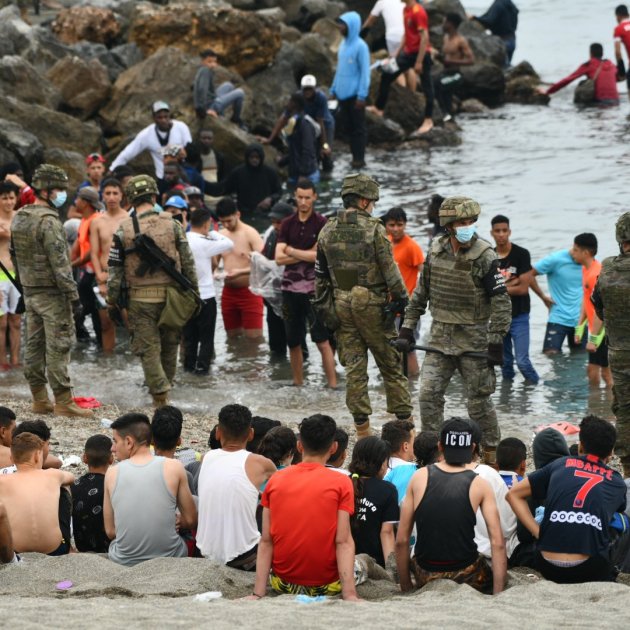The Morocco authorities feel vindicated, after this week managing to send Spanish politics into a spiral of destabilization merely by lifting their border controls to allow the passage of hundreds of young people into Spain's North African enclave of Ceuta. Now, the Rabat government has spelt out to Spain that it will have to take more care in future. The message was sent by Moroccan foreign minister Nasser Bourita, who projected his irritation at what his country sees as the precipitant of the crisis: Spain's reception for health reasons of the Polisario Front leader Brahim Ghali, a figure who is regarded as a terrorist by Morocco.
Bourita asserted that his country will not accept more "double talk" from Spain, referring to the fact that Spanish government says it wants to have good relations with Morocco, but at the same time offers hospital treatment to the Polisario leader, sick with Covid, without even informing them.
Statements by the Moroccan foreign minister Nasser Bourita in the newspaper Tel Quel
"Good neighbourliness and cooperation are not slogans. They must be made tangible. And unfortunately, what Morocco has received [from Spain] since April 17th has not been evidence of either good neighbourliness or cooperation. And Morocco will no longer accept this kind of double talk," he said.
Spain's geostrategic clash with US position
Morocco has become a significant country for the United States in the Arab world, and in recent days has contributed to the ceasefire between Israel and Hamas. And US president Donald Trump also acknowledged Moroccan sovereignty over Western Sahara, in exchange for Morocco recognizing Israel, as the Persian Gulf countries have also done. All indications are that president Joe Biden will follow this Trump policy, because he prioritizes stability in the Arab world and the Middle East, and this is a priority for the American administration.
The fact is that the Spanish government has in recent months occupied a geostrategic position that clashes with this model laboriously designed by the US, first with statements by then deputy PM Pablo Iglesias in favour of the Western Sahara, and then with the hospital treatment for Brahim Ghali, the leader of the Western Sahara liberation group, the Polisario Front. Morocco heard about Ghali's journey to Spain this four days later by chance. The consequences have already been seen, and prime minister Pedro Sánchez has had to deploy the Spanish army on the beaches of Ceuta, and today he has also done so in the other Spanish enclave on the North African coast, Melilla.
Controversy over Spanish defence minister Robles
The Moroccan foreign minister is also indignant about the criticism launched yesterday by the Spanish defence minister, Margarita Robles, against Morocco, saying that it had acted with "vengeance" and asserting that "you don't play games with Spain". According to Bourita, his government has blocked 13,000 attempts at irregular immigration since 2017, dismantled 4,163 human trafficking networks, and stopped 48 attempted assaults on Ceuta, at great economic cost.
"Europe does not pay us even 20% of the cost that Morocco bears in the fight against illegal migration," said the minister, who pointed out that in recent days his country has made "99% of the efforts" to contain the migrants, while “they have done nothing on the other side” - the Spanish side.
